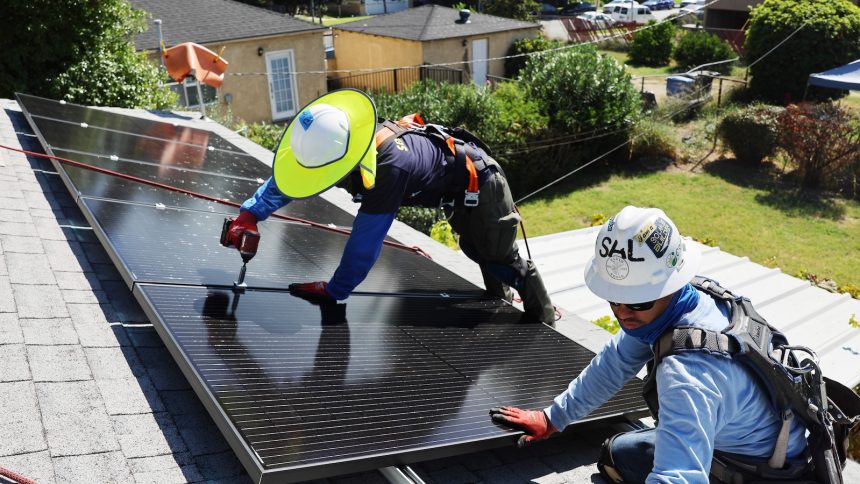In a significant move towards bridging the gap in clean energy distribution, the Biden administration has announced the recipients of $7 billion in grants under the Solar for All program. This initiative aims to bring residential solar installations to low-income neighborhoods that currently have limited access to clean energy solutions.
The funding will be allocated to 60 organizations spanning state, municipal, tribal governments, and nonprofits to support existing programs and establish new ones for low-income solar and battery storage installations. The ultimate goal is to provide affordable clean energy to 900,000 households, benefiting both the environment and the economy.
The impact of this initiative will be most keenly felt by households struggling with high energy bills. President Biden highlighted that low-income families can spend a significant portion of their income on energy costs, making it a financial burden. By introducing rooftop and community solar projects in underserved communities, the Solar for All program aims to save these families an average of $400 annually.
The selection process for the grant recipients involved expert review panels from various government agencies. Once finalized, the funds will enable the implementation of low-income solar programs, making energy-producing panels more accessible to families in need.
Aside from the immediate financial relief for families, Solar for All aligns with the administration’s broader goals of promoting clean energy and environmental justice. The program contributes to the Justice40 Initiative, ensuring that climate investments directly benefit marginalized communities while working towards achieving 100% clean energy nationwide by 2035.
By underwriting 4 gigawatts of solar installations across the country, the $7 billion funding is estimated to prevent millions of tons of carbon emissions and create numerous jobs. Additionally, specific allocations for tribal governments, such as the Northern Plains Tribal Coalition, will support Indigenous communities in their transition to renewable energy systems.
With a focus on energy sovereignty and sustainability, these investments mark a significant step towards a more equitable and environmentally conscious future.






